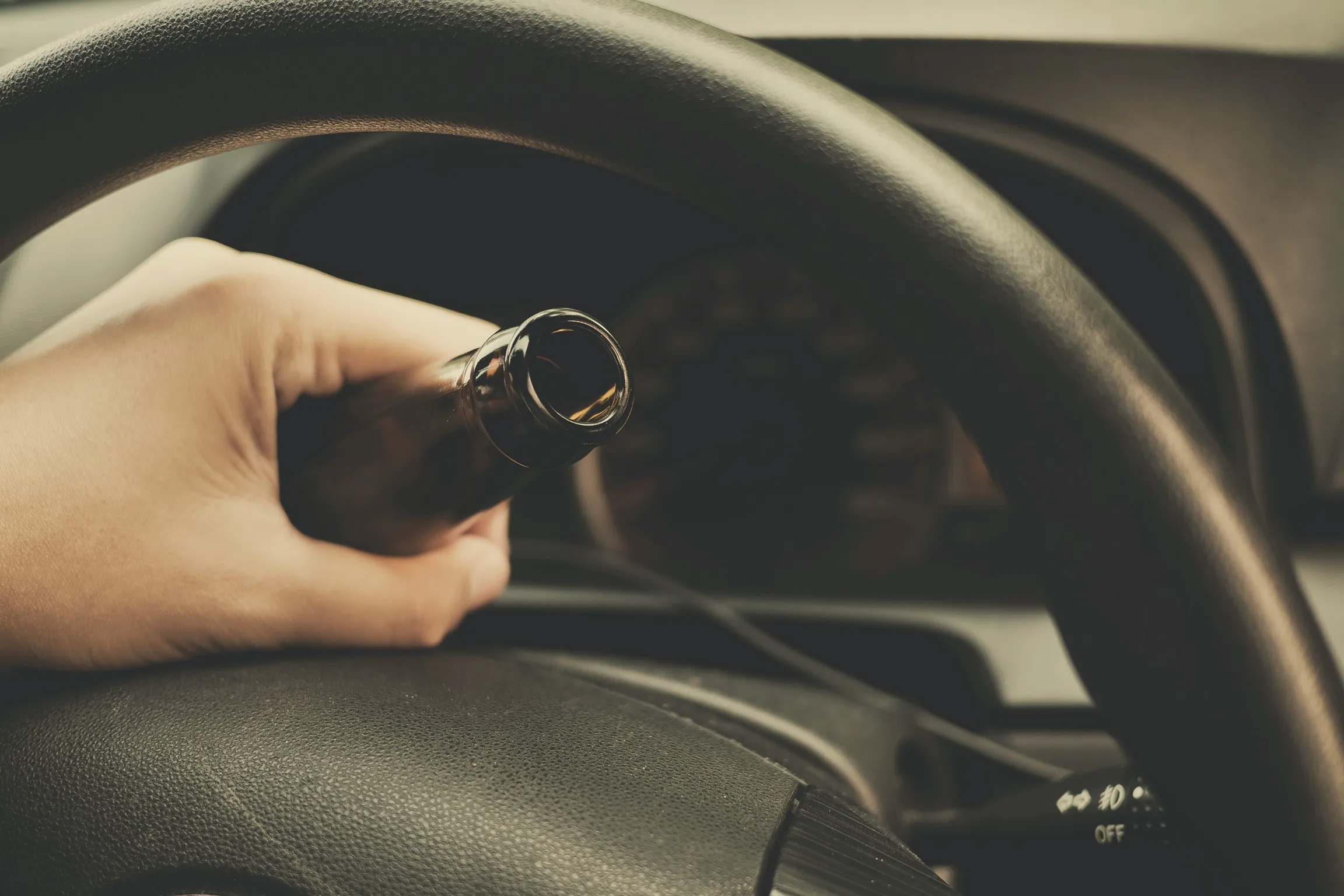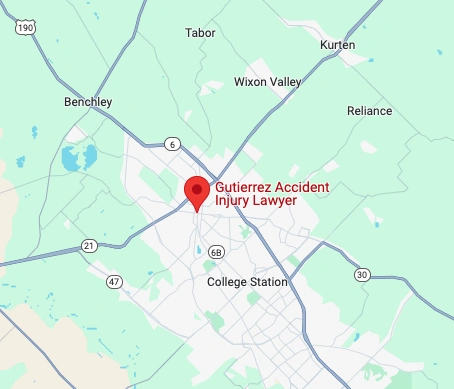Is a DUI/DWI Negligence Per Se in Texas?
In Texas, DUI (Driving Under the Influence) and DWI (Driving While Intoxicated) are considered negligence per se. This means that the law automatically presumes your conduct to be negligent if you’re charged with either offense. This presumption of negligence can have significant consequences, especially if you’re involved in a personal injury legal proceeding.
If you’ve been charged with DUI or DWI and are facing a personal injury claim from a motor vehicle accident, it’s crucial to take immediate action to protect your rights and interests. The outcome of your case can be decisively affected by the presumption of negligence. Therefore, it’s essential to seek legal representation from a skilled attorney who can navigate the legal system and advocate for your rights.


Don’t wait to get the help you need. Contact a DUI/DWI defense lawyer today to discuss your case and explore your legal options. With the right representation, you can work towards a favorable outcome and protect your future. Your freedom and well-being are worth fighting for. Take the first step towards justice by reaching out to Brian C. Gutierrez who can advocate for you. Call us today at 979-271-5338.
Understanding Negligence and Negligence Per Se
In personal injury cases, the legal theories of negligence and negligence per se are usually the main focus. In a nutshell, negligence is defined as the failure to exercise the care that a reasonably prudent person would exercise in similar circumstances, resulting in harm to another individual or damage to their property. When a drunk driver causes an accident, negligence is often at play.
What about negligence per se? This legal theory is a powerful tool for injured parties, enabling them to establish negligence without the necessity of proving the defendant’s conduct. In essence, if a party breaches a duty of care by violating a statute or ordinance such as DUI/DWI laws, negligence per se comes into play. In this situation, grasping the finer aspects of Texas law becomes pivotal.
Elements of Negligence
Proving negligence in personal injury cases necessitates the demonstration of four key elements: duty of care, breach of that duty, causation, and damages. The duty of care refers to the legal obligation one party has to avoid causing harm to another. In the case of a DUI/DWI accident, this duty is violated when a driver chooses to operate a vehicle while intoxicated, an act that clearly presents a risk to others.
As for causation, It’s not enough to simply show that the defendant breached the duty of care. It must also be proven that this breach directly led to the plaintiff’s injuries.
Damages, the final element, refer to the losses the plaintiff has suffered as a result of the accident. These can include medical expenses, property damage, and even pain and suffering.
Defining Negligence Per Se
Negligence per se extends beyond the concept of negligence. It is a legal doctrine that deems an act as negligent due to its violation of a statute or regulation, such as laws designed to prevent drunk driving fatalities. This differs from ordinary negligence, in that it presumes a breach of duty if the defendant has contravened a particular statute or regulation designed to safeguard the public.
In cases of DUI/DWI, negligence per se serves as a legal expedient that eases the process of demonstrating negligence. Without the need to delve into the intricacies of demonstrating carelessness, a plaintiff can cut straight to the chase: the driver broke the law, therefore they were negligent.
DUI/DWI and Negligence Per Se in Texas
How does this all play out in Texas? In our state, a DUI/DWI violation is deemed as negligence per se due to its violation of statutory duty which is designed to safeguard the public. Simply put, if you’re charged with a DUI/DWI, it’s automatically regarded as a negligent act without the requirement for additional evidence of negligence. This can have a significant impact on the personal injury claims process, especially when dealing with insurance companies.
A comprehensive understanding of this requires an initial grasp of the specifics of Texas drunk driving laws and their relation to negligence per se in a drunk driving case. These laws are designed to protect the public from a drunk driving accident and, when violated, can lead to serious consequences for the offending driver.
Texas Drunk Driving Laws
In Texas, the legal blood alcohol content (BAC) limit is set at 0.08% for regular drivers and 0.04% for those holding a commercial driver’s license. The state implements a ‘zero-tolerance’ policy for minors, meaning that even a trace amount of alcohol in a minor’s system can lead to a DWI charge. Violating these limits can result in hefty penalties, not to mention potential liability for any person injured as a result of impaired driving and the risk of alcohol-impaired driving fatalities.
It’s important to note that Texas law distinguishes between ‘DWI’ (driving while intoxicated) and ‘DUI’ (driving under the influence). While both refer generally to the act of operating a motor vehicle while impaired by alcohol or drugs, ‘DWI’ is specifically used when adults are involved, while ‘DUI’ refers to the charge when a person under the age of 21 is caught driving under the influence.
How DUI/DWI Constitutes Negligence Per Se
Once conversant with Texas drunk driving laws, it becomes clearer how DUI/DWI embodies negligence per se. By breaking these laws, a driver is inherently negligent. This violation of laws designed to protect the public establishes that being intoxicated constitutes gross negligence, without the need for additional evidence of carelessness or intent.
This has been demonstrated in multiple legal cases in Texas. These precedents have solidified the perception of DUI/DWI behavior as inherently negligent under Texas law, simplifying the task of proving negligence in personal injury cases arising from drunk driving accidents.
Proving Liability in DUI/DWI Cases
Determining liability in DUI/DWI cases is a pivotal step toward lodging a personal injury claim. This process can be difficult and requires gathering and presenting evidence, including witness statements, statements made by the defendant during the arrest, and results from breathalyzer or blood tests to confirm the level of intoxication.
In addition to gathering evidence, the role of criminal convictions in these cases cannot be overstated. A criminal conviction for DWI can serve as definitive evidence of negligence, thereby alleviating the burden of proving liability in a personal injury case. This is where the experience of a seasoned personal injury attorney such as Brian C. Gutierrez becomes invaluable.
Key Evidence in DUI/DWI Cases
What comprises key evidence in a DUI/DWI case? Several factors come into play:
- Dashcam footage or other video evidence can provide a real-time account of the incident.
- Eyewitness testimony can corroborate these accounts and provide additional context.
- Blood alcohol content (BAC) test results offer concrete proof of the driver’s level of intoxication at the time of the incident.
The police report, while not considered evidence itself, is another crucial piece of the puzzle. It provides essential details of the incident, including the arresting officer’s observations and potential evidence that may be used during the trial. Physical evidence from the accident scene can also be used to support your claim.
The Role of Criminal Convictions
In DUI/DWI cases, criminal convictions can profoundly influence a personal injury claim. A conviction serves to establish the driver’s legal responsibility and liability for the injuries sustained. It can also influence the perception of the convicted individual’s character and prior conduct, potentially influencing the resolution of the personal injury claim.
Even in the absence of a criminal conviction, victims of car accidents who have suffered serious injuries retain the right to pursue a personal injury lawsuit against the driver on the grounds of negligence. This emphasizes the importance of evidence and skilled legal representation in these cases.
Damages and Compensation in DUI/DWI Cases
With liability determined, attention then shifts to damages and compensation. In DUI/DWI cases, victims can seek compensation for economic damages, non-economic damages, and in certain instances, punitive damages. These damages are intended to compensate the victim for the losses they have suffered as a result of the accident.
Economic damages cover tangible costs and financial losses, including medical bills, lost wages, and property damage. Non-economic damages compensate for intangible losses such as pain and suffering, mental or emotional distress, and loss of enjoyment of life. Punitive damages are awarded in cases where the defendant’s behavior was egregiously negligent or intentional, serving to reprimand the defendant and deter similar conduct in the future.
Economic Damages
Economic damages in personal injury cases encompass compensatory damages aimed at reimbursing a claimant for real economic or pecuniary losses. These damages can cover a range of monetary losses, from medical expenses to lost income and property damage.
The medical expenses included in economic damages can cover everything from the immediate costs of emergency care to longer-term costs such as physical therapy, prescription medications, and any required ongoing treatments related to the injury. Property damage includes the expenses associated with repairing or replacing damaged vehicles and other property.
Non-Economic Damages
Non-economic damages aim to compensate for the human cost incurred from the collision. These damages encompass compensation for emotional distress and loss of enjoyment of life.
Pain and suffering damages are determined based on factors such as the extent of the injuries, disruption to daily activities, and the duration of the pain and suffering endured. Emotional distress encompasses emotions such as fear, anxiety, depression, and loss of enjoyment of life, and is assessed through the analysis of medical records, therapy records, and statements from mental health professionals.
Punitive Damages
Punitive damages have a distinct purpose. These damages are granted when the driver has displayed gross negligence or deliberate misconduct to impose punishment and discourage similar conduct in the future.
Punitive damages in Texas DUI/DWI cases are determined by a cap of twice the amount of economic damages plus a maximum of $750,000. The burden of proving gross negligence lies with the plaintiff, who must provide clear and convincing evidence. Please be aware that legal regulations including potential dollar amounts may change over time. For the most current and accurate information, consult with legal assistance to ensure accuracy in your specific situation.
The Importance of Legal Representation in DUI/DWI Cases
The complexities of a DUI/DWI case can be daunting, underscoring the need for experienced legal representation. A skilled attorney can:
- Safeguard your rights
- Contest evidence
- Navigate legal procedures
- Strive for the most advantageous result attainable
Victims in DUI/DWI cases may face formidable challenges. From proving causation to dealing with insurance companies and handling legal processes, having a seasoned attorney such as Brian C. Gutierrez by your side can make all the difference.
Challenges in DUI/DWI Cases
The difficulties in proving causation in DUI/DWI cases stem from the need to establish a direct connection between the defendant’s intoxication and the injuries or damages suffered by the victim, as well as addressing potential intervening causes or pre-existing conditions.
Dealing with an insurance company may compound these intricacies by possibly denying coverage, hiking premiums, and incorporating the conviction into the computation of insurance rates. Legal complexities include intricate legal procedures, encompassing aspects such as criminal defense, ongoing alcohol monitoring, ignition interlock system, and restricted driving privileges.
How Brian C. Gutierrez Can Help You
Understanding the relationship between DUI/DWI accidents and negligence per se in Texas law is critical for victims seeking justice and compensation. From defining negligence and negligence per se to detailing the nuances of Texas drunk driving laws, these are pivotal things to know about DUI/DWI accidents. Proving liability, understanding the types of damages and compensation available, and the importance of legal representation are all crucial parts of this puzzle.
Brian C. Gutierrez is a personal injury attorney with over 15 years of trial law experience in personal injury and car accident cases, he has successfully handled over 1,000 personal injury cases in Texas. Our team works tirelessly to ensure our clients receive the maximum compensation for their injuries.
We provide complimentary case evaluations and work on a contingency fee basis, which means our services are payable only upon winning your case. If you or a loved one has been the victim of a DUI/DWI accident in Texas, we invite you to reach out to us at 979-271-5338 for a complimentary case evaluation.
Frequently Asked Questions
What is the new DWI law in Texas in 2023?
The new DWI law in Texas 2023 includes penalties such as fines up to $3,000, 180 days in jail, a one-year license suspension for a first offense, fines up to $4,500, up to one year in jail, and a two-year license suspension for a second offense. However, the final amount can vary significantly based on the unique circumstances of each case.
What happens if you get in an accident while drunk in Texas?
If you cause an accident while drunk in Texas, you may face a fine of up to $2,000 and 3 to 180 days in jail. It is important to contact a Texas DUI attorney for legal assistance. However, the final amount can vary significantly based on the unique circumstances of each case.
What is the evidence of negligence?
The evidence of negligence includes establishing four elements: duty owed to the victim, breach of duty, causation of injury, and resulting damages. These elements are crucial in winning a negligence lawsuit.
What is the difference between negligence and negligence per se?
Negligence per se is easier to prove than ordinary negligence, as it is assumed when the defendant violates a law. Both can be applied in personal injury cases, despite being distinctly different.
What constitutes negligence in a DUI/DWI case in Texas?
Negligence in a DUI/DWI case in Texas occurs when a driver fails to exercise reasonable care, leading to harm to another individual or damage to their property, such as in drunk driving accidents.
Your College Station, Texas Personal Injury Lawyer
Talk to Us Today
Get a free case evaluation



